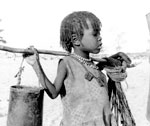
![]()
Search the Journey to Forever website – click HERE
Navigation
Journey to Forever:
Make a donation
Contact usTo Keith Addison Handmade Projects |
Community development
"Change not Charity!" say Journey to Forever's friends at Oxfam Hong Kong. Their clear and simple briefings on development get straight to the heart of the matter. We've summarized some of them here. This is the Credo of Rural Reconstruction, developed by Dr. Y.C. James Yen: Go to the people It's also the credo of the International Institute of Rural Reconstruction (IIRR), a non-profit NGO devoted to improving the quality of life of the rural poor in the developing countries. IIRR was founded in 1960, growing out of the revolutionary grass-roots development movement founded by Dr. Yen in China in the 1920s. Beginning with a series of massive, highly successful literacy campaigns for peasants, Dr. Yen and his colleagues evolved an integrated, sustainable, people-centred development approach that came to be known as rural reconstruction. These are the principles that guide Journey to Forever: See Poverty and hunger -- The causes of poverty, The myth of scarcity
Oxfam Hong Kong
http://www.oxfam.org.hk
Poverty Alleviation -- Solutions
Change not Charity -- Charity and welfare can create dependency. We believe in helping people to help themselves.
If aid or development were simply a welfare exercise of handing over money, then the poor could become more dependent on outside help, less able to help themselves, and ultimately less equipped to solve their own problems.

A child dies every 3 seconds from hunger related causes -- Oxfam HK
We aim to support the efforts of people in finding their own solutions to poverty, rather than imposing solutions. When communities work together to improve their own lives, the result is a permanent strengthening of the community and renewed hope for the future. For this reason, we promote the principles of Participation, Empowerment and Sustainability.
Participation
We help those who are striving to help themselves. All our projects try to involve the beneficiaries at each stage of the project. Participation means that the poor people themselves are involved in identifying the problems they face, determining ways to overcome them, designing realistic plans to achieve these goals, and carrying them out. Solutions devised and fulfilled by the people in need are far more likely to prove successful than those imposed from outside.
Empowerment
From participation grows empowerment. People who truly participate in their own development are permanently strengthened. As well as better incomes or more crops, projects help to improve the skills and the experience of those involved. The project should also help build up more self-confidence and hope in the participants -- confidence that they can make a difference and that they can improve their lives. If projects can give poor people confidence, hope, dignity and strength, they will strengthen people more than any short-term financial help could ever do.
Sustainability
Participation and empowerment seek to ensure that projects bring lasting change which will strengthen people's ability to fend for themselves and improve their lives long after the project has ended and the overseas money has stopped. Therefore, another key principle is sustainability -- a long-term approach that seeks to understand and respect local conditions. We support projects which draw on the vibrant cultural traditions of the people with whom we work, projects which give a voice to all members of the community, and projects which ensure that the natural resources and the environment of the people are protected and sustained.
The Questions: Eight questions that will tell if a community will truly benefit from a development project.
Rural Reconstruction
Live among them
Learn from them
Plan with them
Work with them
Start with what they know
Build on what they have
Teach by showing
Learn by doing
Not a showcase
But a pattern
Not odds and ends but a system
Not to conform but to transform
Not relief but release.
"IIRR's strategy recognizes that the poor face multiple problems: lack of education, inadequate income opportunities, ill health, a degraded environment, political oppression. IIRR uses bottom-up, participatory, integrated strategies to address this interlocking nature of rural poverty."
http://www.panasia.org.sg/iirr/info.htm
IIRR Website:
http://www.iirr.org/Credo